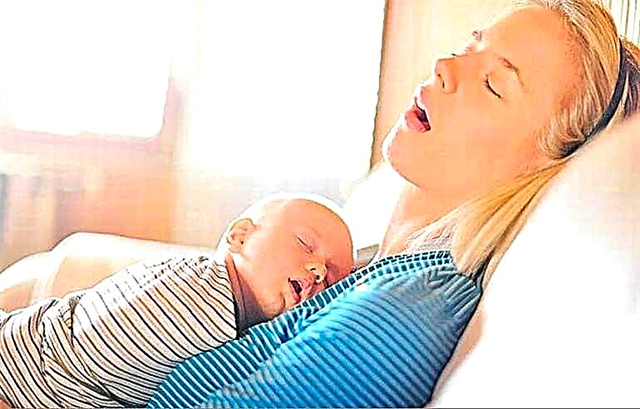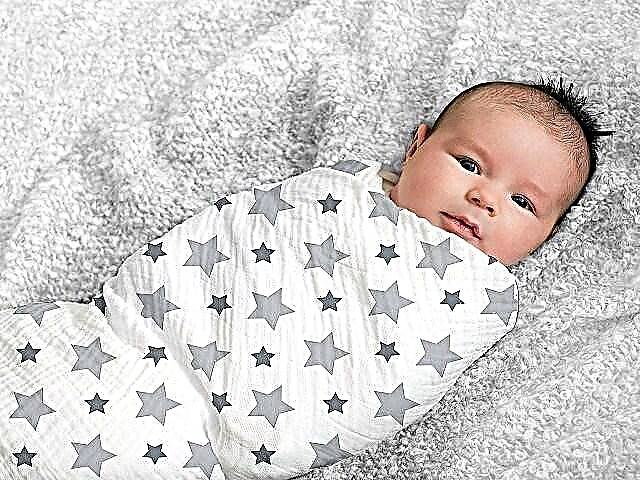After the birth of the long-awaited baby, all parents are ready for any action for the comfort and well-being of the baby, because he looks so touching and unprotected. But after the appearance of the crumbs, the loved ones have a lot of fears and doubts associated with the fear of harming the child, as well as the huge contradictory recommendations for care from others. Often, young parents, lacking experience, are overly zealous in their care, taking seriously many of the delusions of care. To avoid following their example, check out the most common of these misconceptions.

“Babies don't need water, they get it from milk andThe baby needs to be watered all the time "
The first misconception is that water is optional in the baby's diet. First of all, it depends on the method of feeding the baby. If the baby feeds only on breast milk, then with him he receives all the necessary components. If the child is artificially (or mixed) feeding, then water in his diet is required. Ideally, up to six months, its rate per day should be about 200 ml.
Remember! Never give your baby water from the tap. The pharmacy sells special distilled water for babies.
The very sensitive and fragile organism of the baby is designed in such a way that water in the first months of life gives him a feeling of fullness, which entails rejection of the breast, thereby limiting the receipt of all useful components. Babies need to be watered after breastfeeding. Artists are another matter. These babies are watered in between feedings. In any case, it is necessary to water the children for any of their restless behavior.
"Do not teach your baby to hand"
Psychologists are convinced that a mother's hug is very important for babies, as it gives them a sense of peace and security. If you constantly restrict the child from the mother's hands, then in the future the baby can grow up to be an introverted person with communication problems. If, in moments of crying and anxiety, the child is immediately taken in his arms, then with a mother's embrace he receives a feeling of security, care and love. Qualified pediatricians advise parents of artificially fed babies to take them in their arms during the feeding period for these purposes.
"Let the child scream, the voice will be louder"

If your little one’s umbilical wound has not yet healed enough, try to always calm your baby. With a strong cry, increased pressure occurs in the umbilical region. This increases the risk of bleeding and slows down healing.
"A disposable diaper slows down potty training"
Undoubtedly, disposable diapers are very indispensable when caring for a baby. There is a misconception that a disposable diaper, due to its functionality, only delays the habit of going to the potty independently. The formation of potty training skills is due to the functioning of the intestines and bladder. This process is very individual, but on average, accustoming to conscious self-emptying occurs at the age of 18-36 months. Being in a diaper, the toddler really feels comfortable and dry, but from time to time you need to put the child on the potty in order to gradually accustom him to the skills of self-emptying.
“The kid should live in sterile conditions and no pets”
It is believed that the conditions in which the baby grows and develops should be as sterile as possible. However, for his immune system to function properly, he does not need to sterilize milk bottles and boil bathing water every time. After birth, his body begins to develop immunity to all kinds of pathogenic microorganisms. Therefore, your baby is absolutely not defenseless. And constant contact with pets will help avoid asthma and allergies in the future, or reduce the likelihood of their occurrence several times.

But this does not mean at all that you need to rush to extremes. If the umbilical wound has not yet fully healed, then the bathing water must be boiled. This will help keep it disinfected and soft. And a baby's bed is not at all a place for a dog or a cat.
"All herbs are safe, so you can constantly bathe your crumbs in herbal decoctions and give them water."
All medicinal herbs contain one or another chemical component, which affects the diseased organ / organism. Therefore, it is necessary to regularly bathe or treat a baby using the gifts of nature only on the recommendation of a pediatrician. In addition, when using herbs, take 3-4 times less dry mixture than in decoctions for adults. In addition to herbs, caring moms often like to use bath soap, which is also not entirely useful. It is known that soap has a drying effect on the skin, so its frequent use can harm the sensitive skin of the baby. In addition, grass dust can provoke an aggravation or allergy in a child, so you need to prepare decoctions without his presence.
"Vitamins are never enough, but the surplus is still taken out"
Together with breast milk, the baby receives the amount of vitamins that it needs for normal functioning. But stuffing it with additional fortified compounds is highly discouraged. Hypervitaminosis is easy to acquire, but getting rid of it is much more difficult.
Remember! The whole process of vitamin therapy must be coordinated with a pediatrician. You shouldn't choose vitamins on your own, as it can be life-threatening for your child. We also read: What vitamins does a child need?
“The child needs a massage every day”
All necessary physical procedures need to be carried out only with the prescription of a doctor, including massage. It is carried out in courses of no more than 20 sessions, and to avoid overexcitation of the baby, take breaks for at least three weeks.

"Diaper rash is normal"
Diaper rash is a sign of poorly conducted hygiene procedures or a lack of air baths. In addition, redness and diaper rash can be triggered by any allergic irritant (food, diapers, detergents). In the case of disposable diapers, you should carefully consider choosing the right one. If you notice diaper rash on your baby's body, use special powders or soothing creams. The use of baby oil is recommended only on scaly and dry areas, since excessive use of it interferes with the breathing of baby skin.
Important! Do not forget to regularly wash off powders and baby oils, as their excessive accumulation on the baby's body creates an excellent breeding ground for all kinds of pathogenic bacteria. We also read: diaper rash in newborns - treatment.
When caring for newborn babies, it is recommended to purchase specialized scientific literature. When choosing a guide, buy only those publications that are written by medical specialists. The main criteria for care always remain: cleanliness, correct and timely feeding, as well as regular visits to the children's clinic. Also, remember to walk and talk with your baby and pick him up more often. With a monthly scheduled visit to the pediatrician, do not hesitate to ask the questions you are interested in, and then your baby will develop correctly without any possible deviations.
- 15 most outdated baby care tips
- The most important tips for caring for a newborn. Best Memo Article for Moms and Dads
- About the hygiene of newborns
- Daily and weekly baby care from birth to one year old
- My mistakes in caring for a newborn daughter
- 5 most common and typical mistakes in caring for a newborn baby




